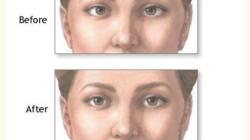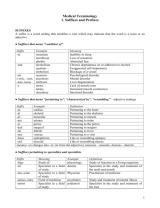What are the side effects of levothyroxine?
Levothyroxine is a medication commonly used to treat hypothyroidism, a condition where the thyroid gland does not produce enough thyroid hormones. While levothyroxine is generally well-tolerated and effective, like any medication, it can have side effects. It's important to note that not everyone will experience these side effects, and some people may experience them to a greater or lesser degree. Common side effects of levothyroxine may include:
Nervousness or Anxiety: Some people may experience feelings of nervousness or increased anxiety when taking levothyroxine.
Irritability: Mood changes, including irritability, can occur in some individuals.
Heart Palpitations: Levothyroxine can affect heart rate and rhythm, leading to palpitations or a sensation of a racing heart.
Insomnia: Difficulty falling asleep or staying asleep may occur, especially if the medication is taken too close to bedtime.
Tremors or Shakiness: Some individuals may experience mild tremors or shakiness in the hands or fingers.
Weight Changes: Levothyroxine can affect appetite and metabolism, leading to weight changes. Some people may experience weight loss, while others may gain weight.
Hair Loss: In some cases, people taking levothyroxine may notice hair thinning or hair loss, although this is usually temporary.
Heat Sensitivity: An increased sensitivity to heat, including excessive sweating, may occur.
Digestive Issues: Some individuals may experience gastrointestinal symptoms such as nausea, diarrhea, or abdominal cramps.
Skin Rash: Rarely, a skin rash or itching may develop as a side effect of levothyroxine.
Chest Pain: In very rare cases, chest pain or angina-like symptoms may occur, especially if the dose is too high.
Allergic Reactions: While rare, severe allergic reactions to levothyroxine can occur. Symptoms may include swelling, severe itching, rash, or difficulty breathing. Seek immediate medical attention if you experience these symptoms.
It's important to take levothyroxine exactly as prescribed by your healthcare provider and to follow their instructions carefully. In some cases, adjusting the dosage or switching to a different thyroid medication may be necessary to manage side effects. If you experience any unusual or severe side effects while taking levothyroxine, it's essential to contact your healthcare provider promptly.
Additionally, levothyroxine interacts with certain medications and supplements, so it's important to inform your healthcare provider about all the medications, vitamins, and supplements you are taking to avoid potential drug interactions. Regular follow-up appointments with your healthcare provider are typically necessary to monitor your thyroid function and adjust the medication dosage if needed.
Side Effects of Levothyroxine Medication
Levothyroxine is a synthetic thyroid hormone used to treat hypothyroidism, a condition in which the thyroid gland does not produce enough thyroid hormone. Levothyroxine is generally safe and well-tolerated, but it can cause side effects in some people.
The most common side effects of levothyroxine are mild and go away on their own within a few weeks of starting treatment. These side effects may include:
- Headache
- Nervousness
- Anxiety
- Difficulty sleeping
- Diarrhea
- Increased appetite
- Weight loss
- Sensitivity to heat
- Hair loss
- Menstrual changes
Less common side effects of levothyroxine include:
- Chest pain
- Fast or irregular heartbeat
- Shortness of breath
- Muscle weakness
- Tremors
- Skin rash
- Allergic reaction
Understanding and Managing the Adverse Effects of Levothyroxine
If you experience any side effects while taking levothyroxine, it is important to talk to your doctor. Your doctor may be able to adjust your dosage or prescribe another medication to help manage your side effects.
There are a few things you can do to help manage the side effects of levothyroxine:
- Take your levothyroxine on an empty stomach. This will help your body absorb the medication more effectively.
- Avoid taking levothyroxine with other medications. Some medications can interfere with the absorption of levothyroxine.
- Get regular blood tests to monitor your thyroid hormone levels. Your doctor may need to adjust your dosage based on your blood test results.
Potential Consequences and Reactions to Levothyroxine Use
If levothyroxine is taken in too high of a dose, it can cause hyperthyroidism, a condition in which the thyroid gland produces too much thyroid hormone. Symptoms of hyperthyroidism include:
- Fast or irregular heartbeat
- Shortness of breath
- Anxiety
- Tremors
- Weight loss
- Sensitivity to heat
- Difficulty sleeping
Hyperthyroidism can be serious, so it is important to talk to your doctor if you are experiencing any of these symptoms.
Levothyroxine can also cause allergic reactions in some people. Symptoms of an allergic reaction to levothyroxine include:
- Hives
- Swelling of the face, tongue, or throat
- Difficulty breathing
- Dizziness
If you experience any of these symptoms, you should seek medical attention immediately.
Overall, levothyroxine is a safe and effective medication for the treatment of hypothyroidism. However, it is important to be aware of the potential side effects and allergic reactions associated with levothyroxine use. If you experience any side effects, you should talk to your doctor.













